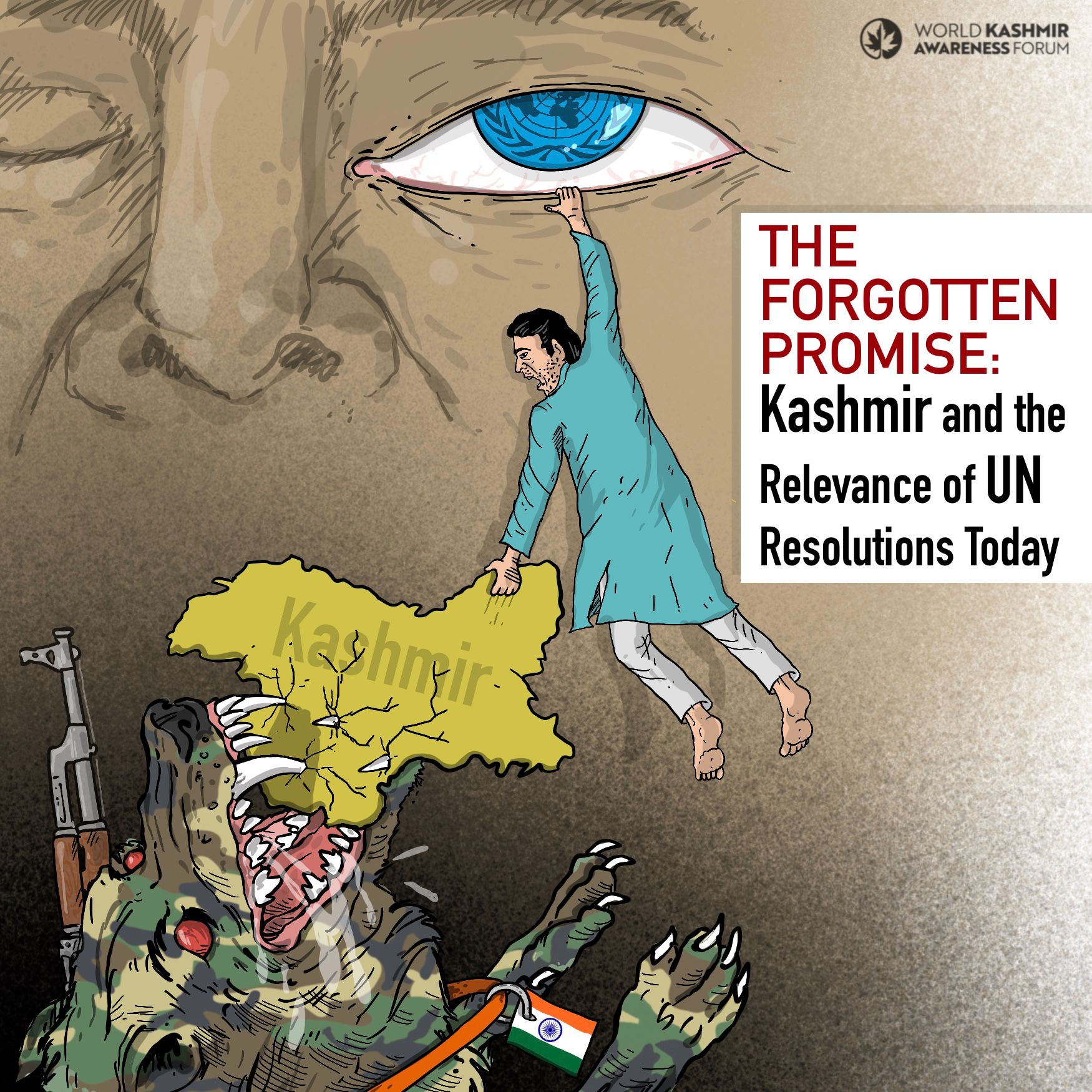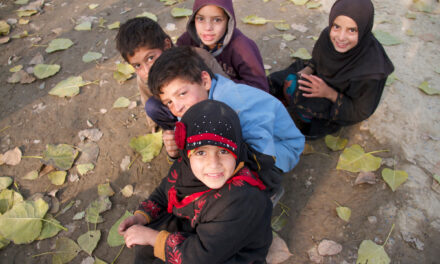
The Forgotten Promise: Kashmir and the Relevance of UN Resolutions Today
1. Kashmir is often described as the most dangerous location on the planet.
The possibility of two nuclear powers confronting each other in such a relatively confined area is indeed alarming.
The conflict over Kashmir remains one of the most extended and tragic issues arising from the partition of British India in 1947. For nearly 78 years, the region has been militarily occupied, contested, and its population’s democratic rights are suppressed. Since the partition, this disputed territory and its inhabitants have been the source of ongoing friction between the world’s most populous democracy, India, and its neighbor, Pakistan.
The occurrence of three major battles between those protagonists over the years exacerbates the current apprehension due to their advanced technology.
Disregarding global and regional ramifications, the ongoing instability and absence of a definitive settlement to the political conflict have resulted in a separated and anxious populace in Kashmir on their future.
The United Nations intervened at the beginning of the conflict, acknowledging Kashmir as a contested region and pledging a plebiscite to allow its inhabitants to determine their own future. This dedication was demonstrated in various United Nations Security Council resolutions, notably Resolution 47 (1948), Resolution 80 (1950), and other relevant actions. These resolutions unambiguously indicate that the international community prioritizes self-determination and justice as fundamental principles. The commitment, however, remains unfulfilled, resulting in generations of Kashmiris enduring uncertainty and oppression.
2. Historical Background: Partition & Accession
Princely states had the option of joining either India or Pakistan when the British announced the division of India in 1947, depending on their location and the wishes of their citizens. Jammu & Kashmir, a Muslim-majority region governed by a Hindu monarch, Maharaja Hari Singh, emerged as the most contentious example. Both Pakistan and India were intensely interested in the accession of the State of Jammu and Kashmir; nevertheless, political turmoil was prevalent in the Valley, leading to the imprisonment of Sheikh Abdullah and Chaudhary Ghulam Abbas by the Maharaja. He also rebuffed Lord Ismay and any other prominent individuals who initiated discussions over the future of Kashmir, skillfully diverting attention.
3. The UN’s Role & Resolutions
In 1948, the United Nations intervened in the Kashmir dispute following India’s presentation of the subject to the Security Council due to hostilities between India and Pakistan. The United Nations established the United Nations Commission for India and Pakistan (UNCIP) to facilitate the resolution of the conflict and promote peace. The UN adopted several significant resolutions about Kashmir in the subsequent years. These resolutions remain significant for comprehending the legal and political dimensions. The resolutions from 1948, 1949, and 1950 initially called for a truce, subsequently requested the withdrawal of troops from both parties, and ultimately proposed a plebiscite for the Kashmiri populace to determine their allegiance to India or Pakistan. The UN emphasized that this vote must be conducted freely, fairly, and under its supervision to accurately reflect the people’s true desires. These resolutions transcended mere diplomatic concessions; they were unequivocal commitments to uphold the principle of self-determination and to acknowledge that coercion or unilateral measures could not determine Kashmir’s future.
4. Why the Plebiscite Never Happened
The United Nations established an official plan for a referendum in Kashmir; but, it did not materialize due to a combination of political impasse, evolving global conditions, and a deliberate absence of foreign engagement. India and Pakistan had divergent stipulations that resulted in the impasse: India demanded the withdrawal of Pakistani soldiers first, but Pakistan insisted on simultaneous demilitarization by both parties. This impasse hindered advancement and allowed external geopolitical interests to intervene. The Cold War exacerbated complexities as major governments often prioritized strategic relationships over justice. India’s involvement in the Non-Aligned Movement and Pakistan’s affiliations with Western blocs also influenced global responses. Over time, the influence and authority of the UN diminished, leading individuals to favor direct negotiations, particularly following the Simla Agreement of 1972, which stipulated that Kashmir was a matter to be resolved only between India and Pakistan. The Lahore Declaration of 1999 reinforced this bilateral strategy, rendering the UN’s role more symbolic than substantive. This gradual marginalization not only postponed the initial commitment to a vote but also purposefully obscured it, rendering Kashmiris voiceless and reinforcing India’s assertion that the region is a vital component of its territory.
5. Why the Resolutions Still Matter Today
Even if people have tried to ignore them, the UN resolutions on Kashmir are still very important today. They are still on the United Nations’ official record, which shows that Kashmir is not just a “internal matter” for India, as some people say, but an unsolved international dispute that needs a fair resolution. The fact that these documents are still around shows that Kashmiris have a legitimate right to self-determination, which the international community has pledged. The resolutions have a lot of moral and political worth in addition to their legal weight. They are a continual reminder of promises that have not been kept, a sign that the international community has failed to follow through on its promises, and a sign of optimism for Kashmiris who have been living under military rule for a long time. In the current human rights situation, when mass detentions, communication blackouts, and militarism have made Kashmiri voices even quieter since Article 370 was repealed in 2019, their importance is much greater. The world community is not only recognizing the legal and political history of Kashmir by looking back at these resolutions, but it is also challenging the common story that the dispute is over. They are nevertheless an important counterbalance to efforts to erase Kashmir’s identity, emphasizing the idea that the people of Kashmir must decide its future and not just one person.
6. The Human Dimension
The paramount aspect of the Kashmir war is the human toll, obscured by political discourse and legal documentation. For decades, Kashmiris have endured significant suffering due to militarization, exclusion from political processes, and the betrayal of justice pledges. For years, curfews, checkpoints, and surveillance have been a fundamental aspect of life for entire generations. The continual presence of military men has become an unfortunate reality of daily existence. Families have been irrevocably divided by the Line of Control, resulting in the permanent separation of loved ones. Numerous accounts of enforced disappearances, displacement, and extrajudicial killings illustrate the profound suffering of ordinary individuals, yet their voices remain unheard in international forums. Alongside physical violence, the psychological distress of enduring perpetual terror, the inability to voice dissent against the government, and the constraints on freedoms impose a significant cost on Kashmiri society. The plebiscite serves not just as a political demand but also as a profound personal manifestation of hope and dignity. For numerous Kashmiris, it represents the promise of a future free from oppression, where their identity, culture, and aspirations are acknowledged rather than suppressed. The UN resolutions remain significant today as they are founded on grief, resilience, and an enduring quest for justice.
7. The International Community & Media Silence
The international community’s stance on Kashmir has mainly been marked by selective engagement and intentional silence, reflecting political expediency rather than principles of justice. Major powers have consistently prioritized their economic and security interests with India over addressing the human rights issues in Kashmir, perpetuating the ongoing confrontation. India’s ascendant position as an emerging economic power and strategic ally in global politics has rendered it relatively overlooked for an extended period. Numerous states are reluctant to challenge its assertion that Kashmir is a “internal matter.” The media has contributed to this erasure by portraying the war as a territorial issue between India and Pakistan, so disregarding the agency and aspirations of the Kashmiri people. The combination of political apathy and media partiality has relegated Kashmir to the periphery of global concerns, resulting in its populace being ensnared in cycles of violence and disregard. Reiterating the UN mandate in global discussions is essential. This aims not only to keep India accountable but also to amplify Kashmiri voices in international discourse.
8. The Path Forward
The UN’s influence in Kashmir has decreased due to prolonged inaction; nonetheless, it retains both the legal authority and moral obligation to address the issue. Significant effort from individuals worldwide is necessary to re-engage the UN, although this is a crucial step in restoring confidence in global justice systems. Bilateralism alone is insufficient; thus, the path ahead necessitates multilateral engagement that incorporates Kashmiris as active participants in determining their future. It is essential to restate international legal and human rights frameworks to clarify that the Kashmiri struggle constitutes a legitimate exercise of the right to self-determination, as safeguarded by the UN Charter, rather than an act of secession or extremism. The Kashmiri diaspora and other entities within global civil society significantly contribute to amplifying marginalized voices and establishing networks of awareness that challenge state-sponsored narratives. It is essential to exert pressure on governments and multilateral organizations globally to fulfill their commitments and acknowledge that peace and stability in South Asia cannot be achieved without resolving the Kashmir issue. Numerous political challenges are ahead; yet, it remains imperative to proceed expeditiously. If these commitments are not repeated, it may render occupation appear normative and contravene the fundamental principles of justice that the United Nations was established to uphold.
9. Conclusion: A Promise Deferred, But Not Forgotten
The narrative of Kashmir does not include any voices that remain silent. The UN resolutions remain pertinent; they continue to signify an unresolved matter of justice. The global community’s indifference legitimizes India’s extended occupation and undermines the autonomy guaranteed to Kashmiris in 1948.
The struggle for Kashmir serves as a measure of global ethics. If the principle of self-determination is disregarded in one context, in what other contexts will it be upheld? What prospects exist for oppressed populations globally if international law is enforced selectively?
The inhabitants of Kashmir continue to recall the commitment made to them. Their actions, sacrifices, and unwavering demand for justice continue to resonate. It is our responsibility—scholars, legislators, civic organizations, and ordinary individuals—to disseminate these truths, contest prevailing narratives, and insist that the world fulfill its commitments.
Until such time, the UN resolutions represent more than just historical artifacts. These are unfinished chapters that require completion—not solely for Kashmir, but for the credibility of global justice in its whole.



